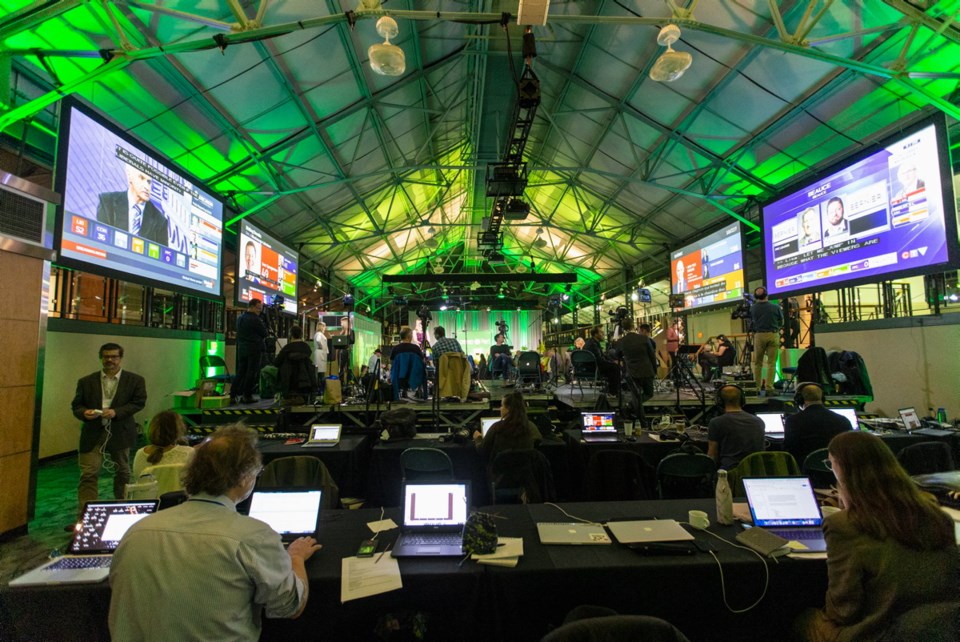After Monday’s election, in which the Liberals won the most seats, but not enough to form a majority government, each of the party leaders confronts a future filled with uncertainty.
Under Andrew Scheer, the Conservatives won the popular vote and increased their seat tally in the House of Commons by 23. But is that enough for Scheer to stay on?
He ran a lacklustre campaign, hampered by his stolid personality and inability to generate excitement on the hustings. Given he was running against a wounded Liberal leader in Justin Trudeau, he should have done better.
Likewise, it didn’t help that he is the second Conservative leader in a row to represent a western riding. That doesn’t play well in Quebec, where Scheer’s party won only 10 of 78 seats.
A good case can be made that the Tories will continue to fall short with Scheer at the helm. That said, he probably did enough to save his job, if indeed he wants to keep it.
In contrast, Jagmeet Singh has a more pleasant challenge on his hands. True, the NDP lost 18 seats nationally, in part because their bastion in Quebec crumbled in the face of a surging Bloc Québécois.
But Singh was the clear winner of the leaders’ debates, and enhanced his personal image, nationwide. His job is not at risk.
Instead, what he must decide is whether to work with the Liberal government, either in a coalition, or in an informal alliance.
He doesn’t have to make such an arrangement. He can stand aside and let Trudeau govern without second- or third-party support.
However, that is the strength of Singh’s position. He can guarantee the Liberals four years in office if he offers his backing. The questions then become: What price does he demand? What might the Liberals agree to?
Singh has already said he will ask for electoral reform, in the shape of representation by population. His party would be a net winner in such a system. Trudeau himself promised rep by pop before the last election, though he subsequently reneged.
Perhaps the only question is whether the decision is put to a referendum, or forced through Parliament by legislation.
After that, things grow more uncertain. The NDP platform was stuffed with high-priced items such as free pharmacare and matching tax hikes. How much of that Trudeau can contemplate, when his own promises result in a deficit of $27 billion, is uncertain. But it seems a safe bet that we are headed for more red ink if an alliance is formed.
Elizabeth May has soul-searching of her own to do. Her Green party increased its standings in parliament, but only by one seat, from two to three.
For a party that has been campaigning on the federal stage since 1983, that isn’t much to show for all the effort. May herself is popular, but her platform has been all but taken over by the NDP and Liberals. Is this still a fight worth waging?
Inexplicably, the Bloc Québécois had a huge night, increasing its seat count from just 10, to 32. We say “inexplicably” because Quebecers are generally recognized as sophisticated voters.
Yet here they are, giving their support to a party that can never form government, is unlikely to be invited into any sort of coalition, and in effect has no influence whatsoever.
There is nevertheless a message here for the other parties. The Bloc leader, Yves-François Blanchet, is a brilliant retail politician. And that, it seemed, was sufficient to make up for a dead-on-arrival platform. The Liberals and Tories should take note.
We won’t waste time with Maxime Bernier, leader of the People’s Party of sa���ʴ�ý. Bernier only formed his party to spite the Tories after they rejected his run for the leadership. He went down in his own riding, as did every one of his colleagues.
Lastly, whither Justin Trudeau? His Liberals lost 29 seats and surrendered the popular vote.
He was dogged throughout the campaign by questions about his judgment, and by photos showing him in blackface two decades earlier.
Essentially the question is this: Has enough of the glitter that first accompanied his election worn off, such that he is now a liability? Certainly, he wouldn’t be the first party leader to overstay his welcome.
The decision might come down to whether he can form a stable alliance with the NDP. If so, there is no hurry.
But if he is forced to soldier on alone, meaning another election is likely within the next two years, the question of his remaining prime minister becomes more urgent.
These questions and others are the result of an election that, in the end, settled nothing.



